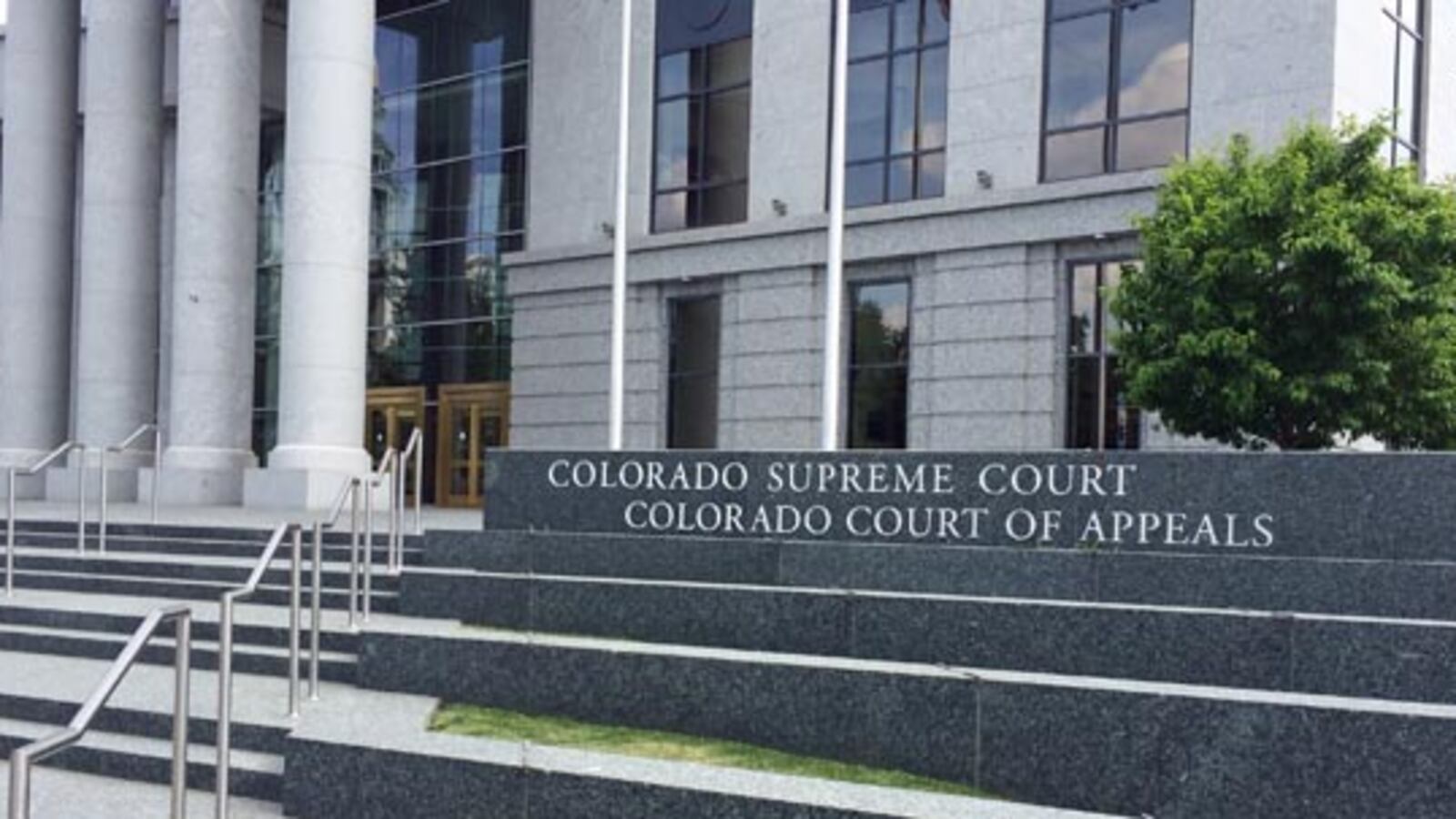A legal challenge to a key piece of the state’s educator evaluation law got new life Thursday when the Colorado Court of Appeals reversed a judge’s decision and reinstated a lawsuit brought by Denver teachers and the teachers union against the Denver Public Schools.
“We reverse the district court’s judgment dismissing plaintiffs’ contract clause and due process clause claims, and we remand the case to the district court with directions to reinstate plaintiffs’ amended complaint and conduct further proceedings,” the unanimous three-judge ruling said.
Observers expect the case ultimately will end up in the Colorado Supreme Court. But DPS Superintendent Tom Boasberg said, “We are not in position to comment on that [an appeal now] yet, in part because we are one of multiple defendants.”
Boasberg’s statement continued, “Forced placement of teachers into schools where they do not want to teach, or where the school is unwilling to offer them jobs, is wrong. It’s wrong for kids, it’s wrong for teachers, it’s wrong for schools.
“Today’s decision was a procedural one in that it directs the trial court to re-initiate hearing proceedings. When the court looks at the merits of the law, it is clear that they will uphold the legislature’s decision to end the harmful practice of forced placement.”
The lawsuit was filed in January 2014 by five former DPS teachers and the Denver Classroom Teachers Association. The suit claimed district officials misused a provision of the 2010 law that set up Colorado’s teacher evaluation system.
Known as mutual consent, the challenged provision requires both principal and teacher agreement for placement of a teacher in a school.
Denver District Judge Michael Martinez dismissed the plaintiffs’ claims – and the case – in June 2014. The plaintiffs went to the Court of Appeals in December 2014 despite calls by education reform groups that the case not be appealed.
The lawsuit claimed that the mutual-consent provisions of the law and DPS’ actions were unconstitutional because they violated the state constitution’s ban on “impairment of contracts” and state laws on the firing of teachers. The suit also alleged that the district violated teachers’ due-process rights.
Plaintiffs argued that non-probationary teachers have “a constitutionally protected property interest in … continued employment” that cannot lawfully be terminated without providing the procedural due process guaranteed by” the state constitution.
The suit sought a court ban on use of the mutual-consent provision for various kinds of non-probationay teachers, plus reinstatement and back pay for teachers who lost their jobs.
The appeals court ruling dealt with those two key issues.
On the first matter, the appeals court said the district judge and the parties didn’t examine all aspects of that issue. “Those questions must be addressed and resolved by the trial court in the appropriate procedural posture. We express no opinion on the outcome of these issues or on whether the teachers’ contract clause claim ultimately is valid.”
Regarding the second issue, the ruling said that as a matter of law “non-probationary teachers have a due process right to a hearing in which the teacher may attempt to show that the purported reason for which he or she was placed on unpaid leave was not the actual reason or that the placement was effected in an arbitrary or unreasonable fashion.” The trial court was directed to also consider that issue.
The mutual consent provision was part of Senate Bill 10-191, the state’s landmark 2010 educator evaluation law. Prior to passage of that measure, a district could unilaterally place a teacher in a school, regardless of the wishes of the principal or other teachers. Ending that practice has been a key goal for education reform groups.
The major elements of SB 10-191 require annual evaluations of principals and teachers, basing 50 percent of evaluations on student academic growth and the provision that teachers who have two consecutive ineffective or partially effective ratings lose their non-probationary status (commonly called tenure).
The lawsuit focused on the mutual consent portions of the law and didn’t challenge other requirements of the evaluation system.
Reacting to the ruling, Colorado Education Association President Kerrie Dallman said, “The Masters lawsuit was filed as a result of a district’s misuse of the law to unfairly and systematically remove highly experienced and effective teachers from our classrooms. … Today’s court ruling enforces the promises made that the new law would not work to deprive teachers of their vested contractual and due process rights without a hearing.”
But Scott Laband, president of Colorado Succeeds, said, “If today’s decision stands, principals will be stripped of the basic right to hire who they want on their instructional team.” His organization is a business-based advocacy group that filed a friend of the court brief in the case. “Colorado Succeeds looks forward to backing an appeal to the Colorado Supreme Court.”
Colorado Succeeds is part of the Great Teachers and Leaders Coalition, which has been the leading critic of the lawsuit. That group is made up of civic, business and non-profit organizations from across the education reform spectrum.
The five individual plaintiffs are Cynthia Masters, Michele Montoya, Mildred Kolquist, Lawrence Garcia and Paul Scena. The DCTA has been supported in the legal effort by the statewide union, the Colorado Education Association.
Members of the State Board of Education also are defendants in the case, a formality common in suits that involve challenges to state education law.

